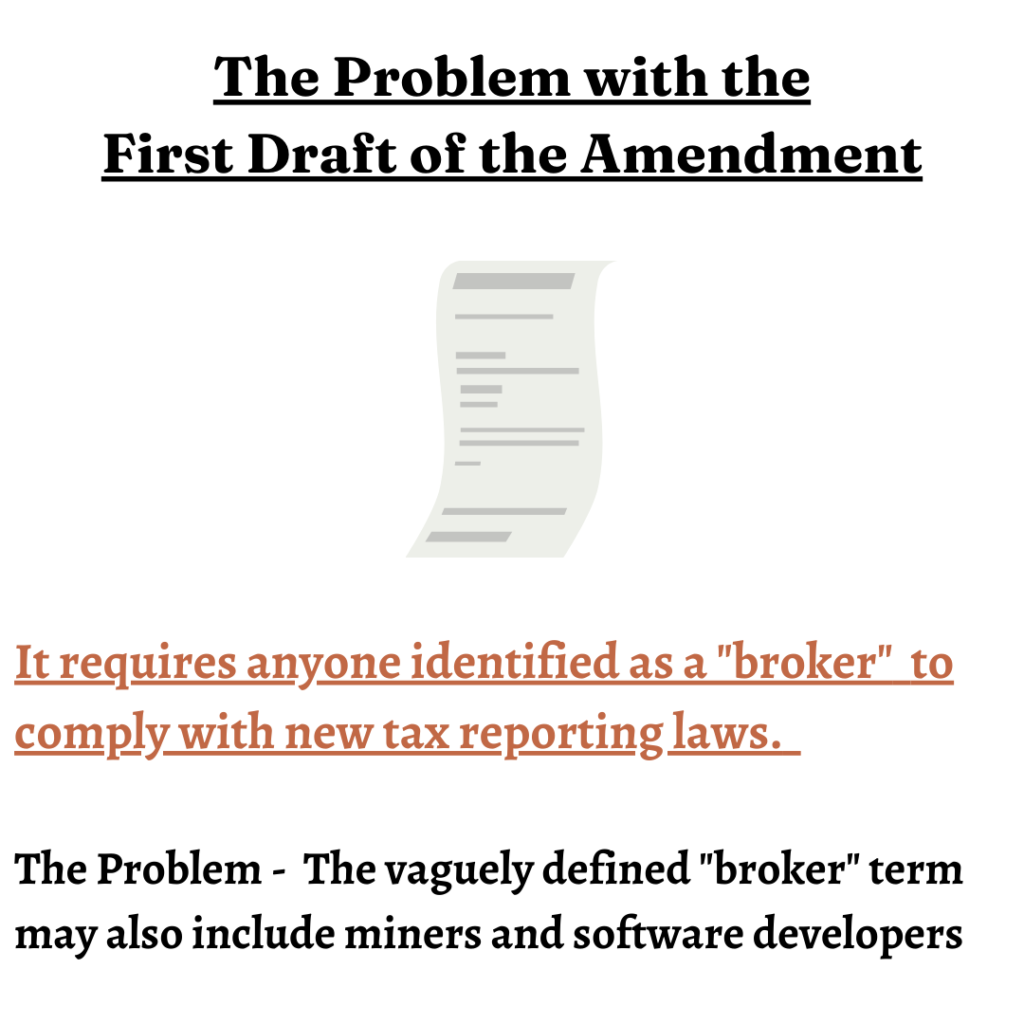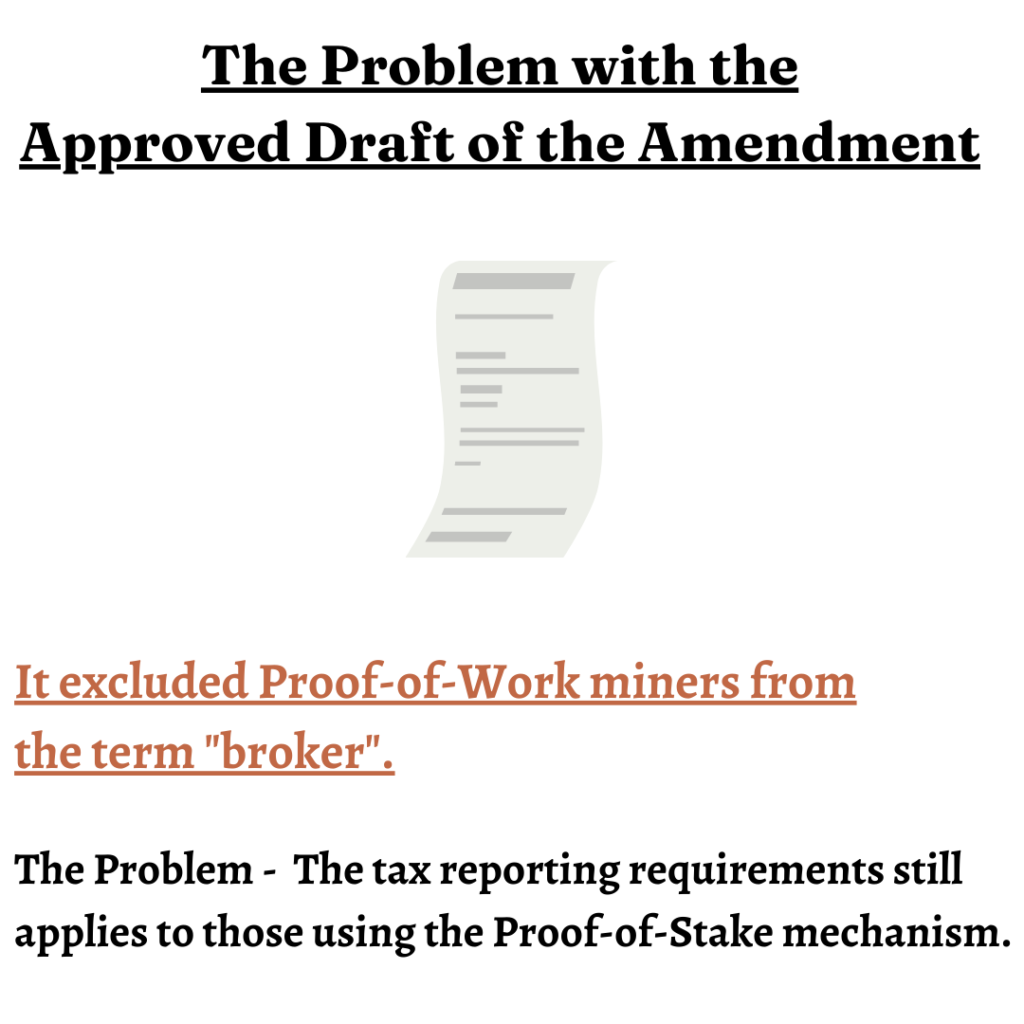How the Crypto Infrastructure Bill Might Affect Crypto Taxes
The Senate finally gave bipartisan approval to the $1 trillion infrastructure bill, also known as HR 3684, last Tuesday, the 10th of August. Focused on collecting and allocating money for building bridges, roads, transportation systems, and supporting clean energy, along with other advancements, the bill plans to raise $28 billion through taxes from crypto transactions out of the total amount of $1 trillion.
Crypto as the Center of Attention in the New $1 Trillion Infrastructure Bill
It’s already a huge milestone for crypto, but its role in the infrastructure bill got even more significant when two opposing amendments clashed over the new crypto-tax reporting requirements. Here in this article, Bitcoin.Tax brings you everything you need to know about the situation, what the two amendments say and what it represents, who it affects, and what it means for cryptocurrency.
What Really Happened?

The initial amendment proposed by Mark Warner (D-VA), Rob Portman (R-OH), and Kyrsten Sinema (D-AZ) requires anyone identified as a “broker” to comply with the new tax reporting requirements. The problem? Well, the problem is with the term “broker,” used in the bill, which defines anyone “responsible for and regularly providing any service effectuating transfers of digital assets on behalf of another person.”
Going by the definition, the bill seems to identify miners, software developers, wallet developers, and other entities as brokers too, which is technically flawed and unfair. For example, miners use a “proof of work” system to solve algorithms that validate crypto transactions. It’s a simplified explanation, but largely that’s how it works. However, the problem is that the miners don’t have customers, so it’s technically impossible for them to comply with the provisions because they can’t access the information required to fill out a 1099 tax form.
It’s one of those crypto bills that will play a significant role in the future of crypto taxation, and for this very reason, as expected, the Warner-Portman amendment received a lot of criticism for its ignorance from many influential figures in the industry.
According to the Electronic Frontier Foundation (EFF), not only is this a tax reporting issue, but it’s also a privacy issue. They pointed out how mandating the collection of names, addresses, and transactions might force almost every crypto-related company or platform to keep tabs on its customers and users.
The nonprofit organization, Fight for the Future even urged people to call senators and encourage them to find better alternatives. The director of Fight for the Future, Evan Greer, believes that policies that impact people’s basic rights and civil liberties should never be tacked on to legislation like an infrastructure bill.
Apart from that, the amendment received a great amount of pushback from many other groups and individuals. A group of entities and crypto stakeholders, including Square, Coinbase, and RibbitCapital, signed a joint letter addressing the flaws in the bill and encouraging better alternatives.
A Ray of Hope?

On Wednesday, 4th of August, we saw a ray of hope when Cynthia Lummis (R-WY), Ron Wyden (D-OR), and Pat Toomey (R-PA) proposed an amendment redefining the bill’s tax reporting requirements in response to the criticism of the Warner-Portman amendment.
This new amendment ensured protection for node validators (miners), software developers, and wallet developers by excluding them from the need to report data that’s practically impossible for them to collect. Though it wasn’t perfect, it was certainly better than Warner-Portman’s proposed amendment and received positive feedback and support from the general public as well as prominent industry figures.
However, this ray of hope didn’t last long as Mark Warner (D-VA), Rob Portman (R-OH), and Kyrsten Sinema (D-AZ) proposed a newer version of their original amendment. This new version of the amendment exempts traditional crypto miners, using time-consuming “proof of work” (PoW) systems from the tax reporting requirements, but doesn’t exclude those using the “proof of stake” (PoS) system.
Currently, the “proof of work” system is only used by Bitcoin and Etherium 1.0, while all the altcoins (cryptocurrencies other than Bitcoin) use a “proof of stake” system. Not only are the tax reporting requirements unfair to the altcoin users, but it also puts them at a greater disadvantage in the long run.
Despite another wave of widespread criticism and negative feedback, the newer version of the Warner-Portman amendment received praise and support from the White House and other administrators, as from their perspective, “it strikes the right balance.”
Lastly, as Senator Pat Toomey tweeted, the Warner-Portman amendment chooses winners and losers based on the type of technology employed, and that’s not good for innovation.
Who it Affects
It mainly affects the altcoin miners and developers using the “proof of stake” system. But in the long run, it will affect everyone involved with cryptocurrency. As we mentioned earlier, the bill has already got bipartisan approval from the Senate, while approval from the House is still on hold. So, it will be interesting to see how everything unfolds as we move forward.
What it Means for Cryptocurrency and its Future
Firstly, looking at the brighter side, this whole situation is already a massive win for cryptocurrency. Why? Considering how new the cryptocurrency technology is, a crypto-related matter being at the center of concern for the huge $1 trillion infrastructure bill represents that people are taking crypto seriously and that it plays a significant role in the system now. No crypto bill up until this point has played such a crucial role in a government decision as big as this one.
However, as for the amendment and what it represents, it’s definitely something to be concerned about. Note that people are not against the idea of imposing taxes on crypto, but it’s the tax reporting requirements people have a problem with. As many people pointed out, this new tax reporting requirement fails to treat all technology and its users equally and fairly and further discourages innovation.